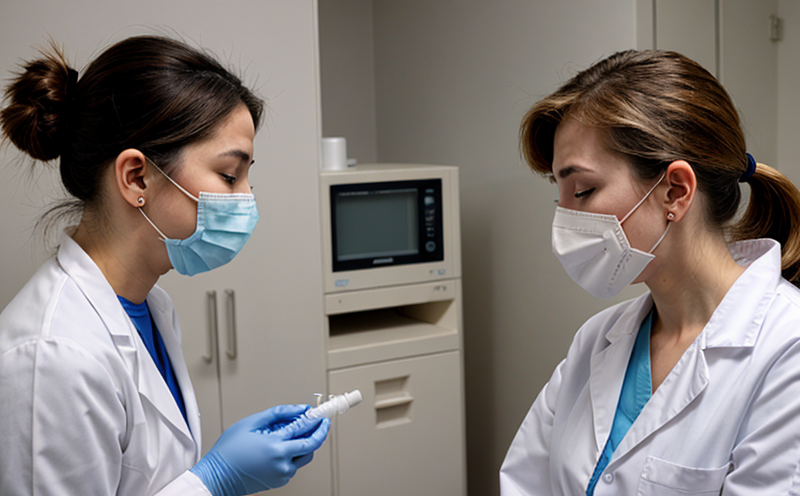Celery Allergen Testing in Packaged Foods
Identifying and managing food allergens is a critical component of maintaining public health. Among these, celery is one of the top eight food allergens recognized by international standards such as the FDA, the EU Commission Regulation (No 1169/2011), and the ISO. This service focuses on ensuring that packaged foods are free from unintended celery allergen contamination, thereby safeguarding consumers with food allergies.
The detection of trace amounts of celery in packaged products can pose significant risks to those affected. The consequences of such contamination include anaphylaxis and other severe allergic reactions, underscoring the need for stringent quality control measures at every stage of production. This service offers a robust solution by providing precise and reliable testing methods that ensure compliance with relevant regulations.
The process involves several key steps: sample collection from the packaged food products, extraction of allergen components using appropriate techniques, and detection via immunoassay technologies like ELISA or lateral flow assays. These methods are highly sensitive and specific, capable of identifying even trace levels of celery protein in complex matrices.
Compliance with regulations such as the EU's Regulation (EU) 1169/2011 mandates labeling of allergens in food products. This service plays a pivotal role by helping manufacturers meet these legal requirements, ensuring consumer safety and trust.
Our laboratory utilizes state-of-the-art equipment and methodologies to deliver accurate results within specified timeframes. The testing process is designed to be efficient yet thorough, allowing for quick turnaround times without compromising on accuracy or reliability.
The importance of this service extends beyond mere compliance; it reflects a commitment to public health and consumer safety. By offering reliable celery allergen testing, we contribute significantly towards reducing the risk of adverse reactions among individuals with known allergies.
Applied Standards
- ISO 15038:2007 - Food - Determination of certain allergens in food by immunochemical methods
- EU Commission Regulation (No 1169/2011)
- FDA Food Allergen Labeling and Consumer Protection Act of 2004
These standards provide the framework for accurate detection and quantification of celery allergens in food products. They ensure that testing methodologies are reliable, reproducible, and consistent across different laboratories.
Our laboratory adheres strictly to these guidelines, ensuring that every test conducted meets the highest industry standards. This commitment not only guarantees compliance with regulatory requirements but also enhances consumer confidence in the safety of the packaged foods they consume.
Why Choose This Test
- Precision and reliability: Our tests are conducted using advanced immunoassay technologies that ensure accurate detection even at trace levels.
- Comprehensive service: We offer a full suite of services including sample preparation, extraction, and final analysis.
- Rapid turnaround times: Despite thorough testing processes, we aim to deliver results within 7-10 business days from receipt of the sample.
- Expertise: Our team of scientists is highly experienced in allergen testing and can provide valuable insights into potential issues and solutions.
The comprehensive nature of our services, combined with our state-of-the-art facilities and expertise, makes us a trusted partner for food manufacturers looking to ensure the safety and compliance of their products. Our commitment to precision and reliability ensures that every test meets the highest industry standards.
Use Cases and Application Examples
In the context of clinical & healthcare testing, especially within allergy & immunology, celery allergen testing in packaged foods is crucial. Here are some practical applications:
- Preventive Measures: For food manufacturers, this test ensures that their products do not contain any unintended traces of celery, thus preventing potential allergic reactions.
- Regulatory Compliance: Compliance with EU and FDA regulations is a necessity for any food product sold in these regions. This testing helps meet those requirements by ensuring accurate labeling.
- Patient Safety: For individuals with known celery allergies, knowing that their packaged foods are free from contamination can significantly reduce the risk of adverse reactions.
In addition to these primary applications, this testing also supports research and development efforts in food science. It helps identify new allergens or changes in existing ones, contributing valuable data to ongoing studies on food safety and allergen management.





